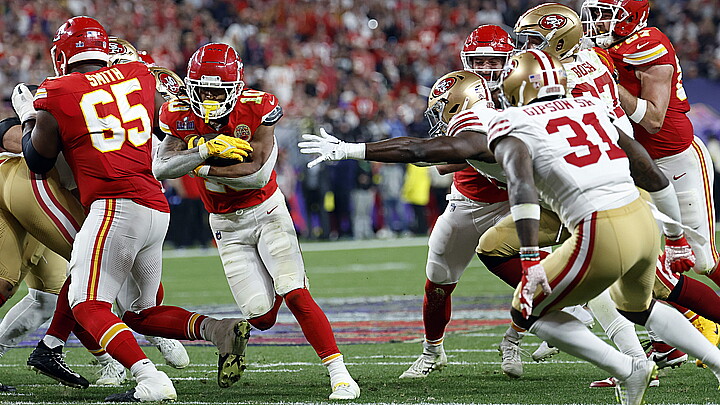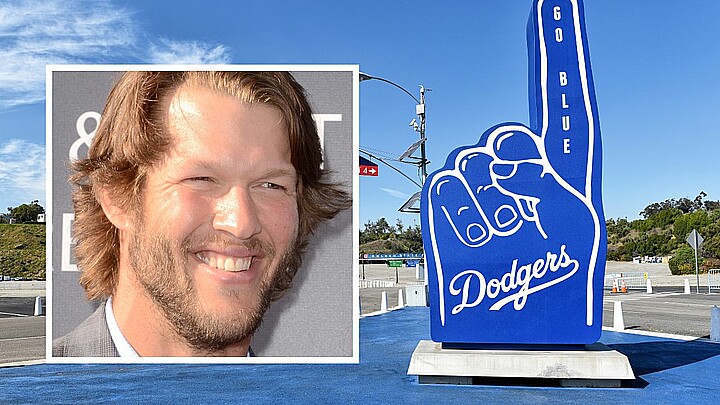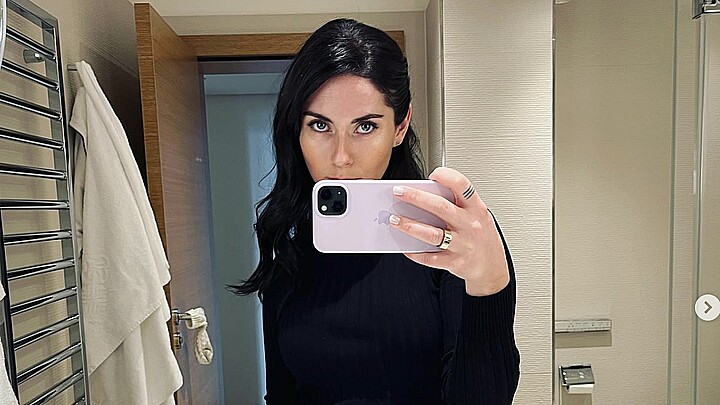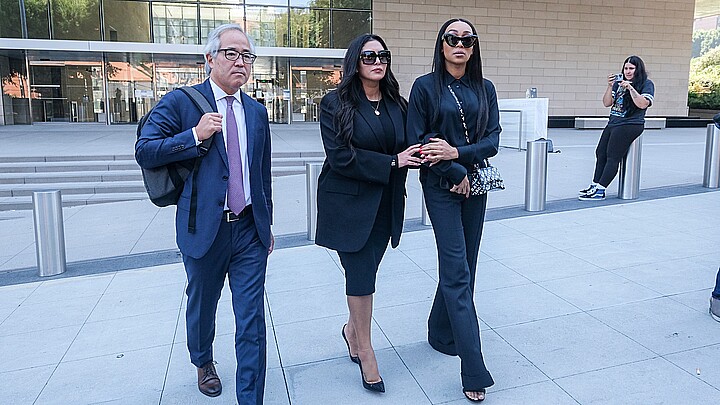Sports
Olympic medalist leads boycott of Nike after ad with trans influencer Dylan Mulvaney
Olympic swimmer Sharron Davies said the move was a 'step' back after several sports entities moved to give biological women their own protected category in competitions.
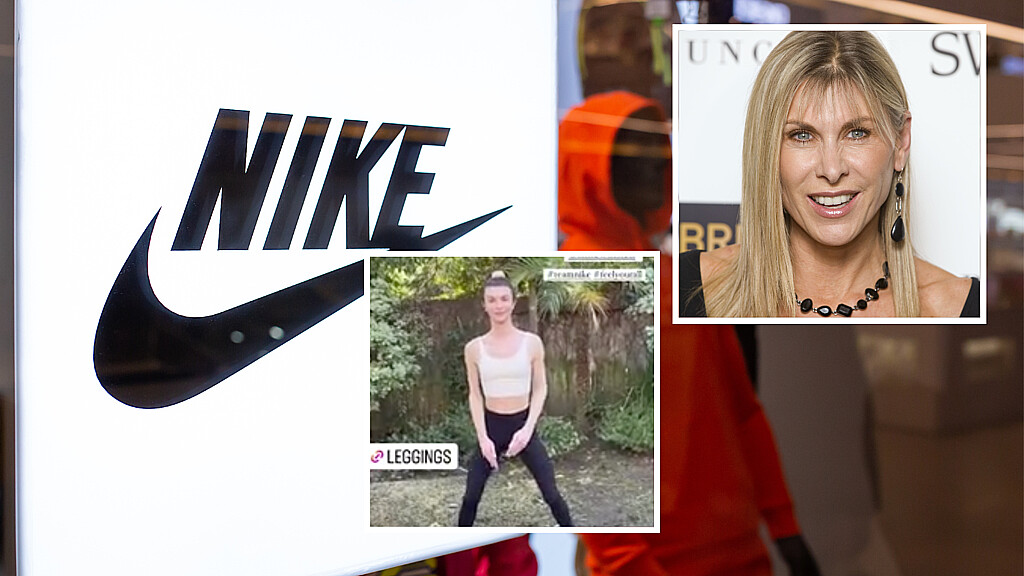
April 7, 2023 2:18pm
Updated: April 7, 2023 2:27pm
Olympic swimmer Sharron Davies has called for a boycott of Nike over its partnership with Dylan Mulvaney, a transgender influencer, to promote a line of bras.
Twenty-six-year-old Dylan Mulvaney is a trans actress, comic and content creator from San Diego, California with millions of followers on TikTok (10.8 million) and Instagram (1.7 million).
Earlier this week, Mulvany put a picture in a Nike sports bra, tagging Nike Women, the Instagram handle that promotes products for women. “Alert the media — I’m entering my workout era,” Mulvaney wrote as he modeled in the bra and pants.
As part of the promotion, she also uploaded several videos to Tik Tok where she is seen running and working out in a caricaturist way.
Nike is the latest mega corporation to make Dylan Mulvaney, a biological man, their female brand ambassador.
— Michael Seifert (@realmichaelseif) April 5, 2023
These companies are spitting in the faces of women every single day.
Stop giving them your money.
pic.twitter.com/KOEt09uv2e
Davies who has won numerous medals during her career said the move was a 'step' back after several sports bodies moved to give biological women their own protected category in competitions.
Davies, who is from the United Kingdom, also said she is "saddened" by the partnership and that "the concerns of girls and women athletes are being swept aside".
“The ad feels like a parody of what women are. In the past, it was always seen as an insult to say, 'run like a girl' and here we've got someone behaving in a way that's very un-sporty and very unathletic and it's so frustrating when only 1 percent of USA sponsorship dollar goes to females in sport. That Nike would do this feels like a kick in the teeth,” said the retired British swimmer who competed in the Olympics and Commonwealth Games in the 1970s and 1980s.
According to a study by the Women's Sports Foundation, women's sports teams receive only 0.4% of the total sponsorship dollars, despite comprising almost 40% of all sports participants.
This suggests that women receive significantly fewer sponsorship opportunities compared to men in sports. The study also found that women's sports received fewer media coverage, only 4%, and were allocated fewer resources, which may contribute to the gender gap in sports sponsorship.
Mulvaney has reportedly earned more than a million dollars from endorsements with fashion and beauty brands Kate Spade, CeraVe, Ulta Beatury, and others. Mulvaney, a biological man, identifies as a woman and uses the pronouns 'she/they' but has not yet had gender reassignment surgery.
When criticizing Nike's new sponsorship, Ms. Davies also recalled the 2019 controversy between the brand and American track and field athlete, Allyson Felix, who wrote an op-ed in the New York Times revealing that Nike had wanted to pay her 70% less after she became pregnant.
"For a long time, Nike sponsored Allyson Felix, one of the world's most incredible track athletes. Then, when Allyson got pregnant, they reduced her sponsorship by 70 percent when she had something happen to her that happens only to women," David said also adding that "women are being treated with total disdain at the moment, particularly in the world of sport where physiology makes so much difference.'
Felix, a nine-time Olympic medalist from Los Angeles, California, had been sponsored by Nike for several years and had been negotiating a new contract when she informed the company of her pregnancy, according to her OpEd.
Felix wrote at the time that Nike had wanted to cut her pay and provide no guarantee that she wouldn't be punished if she didn't perform at her best after returning from maternity leave. She also criticized the company for failing to support its female athletes who become pregnant.
Felix's op-ed sparked public backlash against Nike, with many people criticizing the company for its treatment of pregnant athletes. In response, Nike changed its policies and announced that it would no longer financially penalize female athletes for becoming pregnant. The company also promised to provide its athletes with protection during pregnancy and 18 months after giving birth.
Following the controversy, Felix decided not to renew her contract with Nike and signed a new deal with Athleta, a women's sportswear company owned by Gap Inc. Felix cited Athleta's support for female athletes as a key factor in her decision to switch sponsors.
For the partnership with Mulvaney, Nike also received some pushback from transgender activist and former Olympian, Caitlyn Jenner, who criticized the partnership Nike for partnering and accused Nike of being "woke" and promoting a "politically correct agenda" by partnering with Mulvaney.
“As someone that grew up in awe of what [Nike co-founder] Phil Knight did, it is a shame to see such an iconic American company go so woke!” she tweeted. “We can be inclusive but not at the expense of the mass majority of people, and have some decency while being inclusive. This is an outrage.”
While Jenner did not explain how this partnership harms "the mass majority of people," she did tweet "STOP TRYING TO ERASE WOMEN" in response to the partnership.
In 2016, Jenner had a different attitude towards trans people and brand partnerships when she was chosen as one of the faces of H&M's sportswear line.
Maureen Callahan, editor of the New York Post and known for her opinions on feminism, expressed criticism of Nike's decision to hire a trans influencer to advertise sports bras for women.
Callahan described the decision as an "insult to biological women everywhere," particularly female athletes who have fought for their place in elite and professional sports. She expressed concern that the hiring of transgender individuals could be leading to the "erasure" of biological females from culture.
Callahan also acknowledged that everyone has the right to identify and live as they choose.
Nike did not issue a response about the backlash received. However, a Nike spokesperson defended the partnership with the transgender influencer, stating that the company is "committed to creating a more inclusive culture and fostering diversity in all its forms."
The partnership with Nike comes days after another controversy regarding a partnership between Bud Light and Mulvaney to celebrate Mulvaney’s “Day 365 Of Girlhood video series”. The beer brand was met with disdain and boycott calls from angry social media users.
Mulvaney has so far not commented on the controversies.

